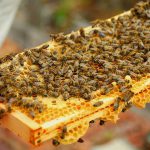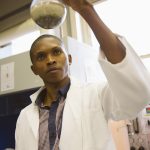
When I first heard, years ago, that the name of a piece of music was Water Music, I chuckled, and chuckled even louder when the friend earnestly asked: “Do you get it?” The name was whimsical, silly and the young man who was me did not “get it”.
I cover my face sometimes at the memory of where I’ve been – things done and said. You wish that sensitivity and wisdom were downloads, apps that could spare you making some of the dreadful mistakes you make as you make your way through life. Denial is one response to mistakes. Another is projection where you criticise someone else who makes the same mistake (as if that lets you off the hook!) The best response is quiet acknowledgment, and a hope that somewhere in the process of forgiveness and taking responsibility something worthwhile is added to your character.
In the Tao te Ching, water is used as a symbol for humility. Water is content to go to low places which people disdain [ch.8]. Water is like the supreme good since it nourishes all things without trying to. And the way in which it can wear down a rock is a picture of how not being pushy can be the power that triumphs over the hardest thing [ch.43].
Water makes all life possible, without even being aware of it. It flows between countries that, we are told, may go to war because of their wanting to take ownership of it. It is one of the farmer’s best friends (and farmers knew this before the drought).
Today there is a scratch-head moment. A certain character in the Strategic Water Partners Network, we read, said the agriculture industry is the biggest consumer of water in South Africa yet it contributed a mere 3% to the country’s GDP. It is said as a reprimand, something a naughty child might hear in the headmaster’s office on Monday morning. “You greedy boy, taking all that water when you know you only produce 3% of the GDP!” Knowing that we’ve all made mistakes and said the darnest, stupidest things, let’s count to ten before responding …
And what do you think farmers do with all that water? Is it possible that it is used to produce the food you ate this morning? And to produce the food you ate yesterday and the day before and – let me just check – yes, the food you’ve eaten your whole life? The farmer’s 3% makes the other 97% possible. It is because of the farmer that you can get on with another job, like sitting in Strategic Water Partners Network meetings, knowing that the question of food is being attended to.
The question is: how humble and unassertive (and waterlike) should the farmer be about this? Do we expect the pilot to justify the seating arrangements: to convince the passengers that it is important for him and not them to be in the cockpit, even if they are envious of the privacy there? Or the ambulance to persuade the other cars to let it through? We could use a host of other comparisons, but really, it should be obvious to everyone who ate (or who did not eat) today what the farmer’s role is. Like water itself, agriculture’s three percent is indispensable to life as we know it.



Share this article







